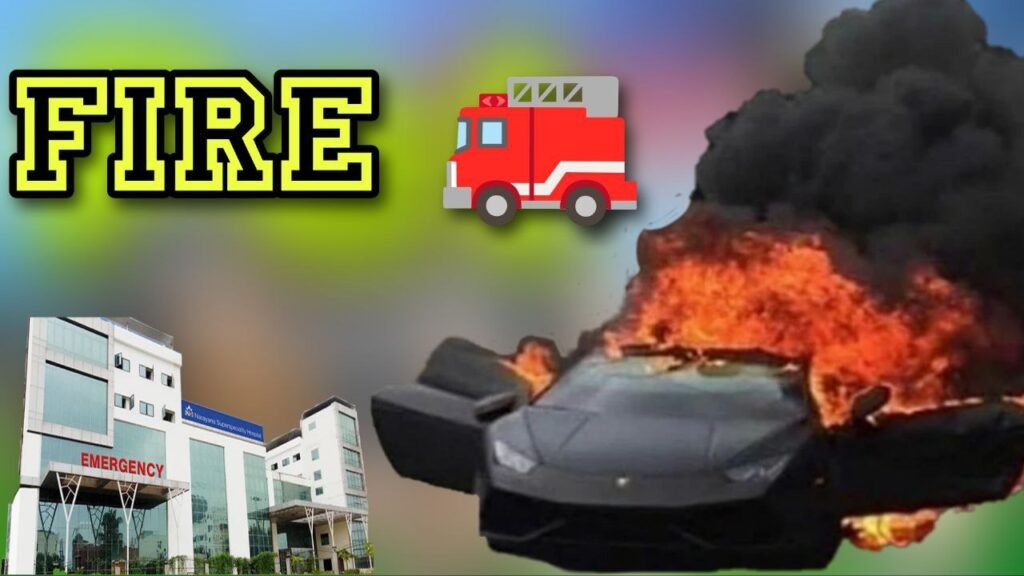Fire accidents can happen without warning, and the damage they cause can be devastating—emotionally, physically, and financially. Whether you’re a homeowner, business owner, or renter, having fire insurance can give you peace of mind knowing that you’re financially protected in the event of a fire. Fire insurance is a crucial component of your overall property insurance plan, designed to help you recover from fire-related damage.

What Is Fire Insurance?
Fire insurance is a type of property insurance specifically designed to cover damages and losses caused by fire. It provides compensation for the damage or destruction of property (homes, businesses, personal property) caused by fire-related incidents. In some cases, it may also cover the costs associated with the firefighting efforts, fire prevention systems, and temporary living expenses while your property is being repaired or rebuilt.
What Does Fire Insurance Cover?
Fire insurance can vary in terms of coverage, but generally, it provides the following protections:
- Damage to Structure
- Covers the damage or destruction of the physical structure of your property, including walls, roof, floors, and other essential parts of the building.
- Reimburses the cost to repair or rebuild the property following fire damage.
- Damage to Personal Property
- Covers the loss or damage to personal belongings inside the property, such as furniture, appliances, electronics, clothing, and other personal items that may be destroyed or damaged by fire.
- Depending on the policy, compensation is based on the replacement cost or the actual cash value of the items.
- Liability Coverage
- Provides coverage in case the fire causes harm to others or their property. This includes damages and injuries to third parties resulting from the fire.
- If you are held legally liable for a fire (e.g., if the fire was caused by negligence), this aspect of fire insurance can cover legal costs and damages.
- Firefighting Costs
- Some fire insurance policies also cover the cost of firefighting services (e.g., the water or foam used to extinguish the fire), depending on the policy and the jurisdiction.
- Additional Living Expenses
- If your home is rendered uninhabitable due to fire damage, this portion of the policy helps cover temporary housing, meals, and other living expenses until your property is repaired or rebuilt.
Types of Fire Insurance
Fire insurance policies can be purchased individually or as part of a broader property insurance package. Here are the main types:
- Standard Fire and Special Perils Policy
- This is the most common type of fire insurance, covering damage due to fire and additional risks, such as lightning, explosion, and natural calamities like floods or storms.
- Comprehensive Fire Insurance
- Offers a wider range of coverage than the basic fire insurance policy, covering fire damage as well as loss due to theft, vandalism, and other specified events.
- Consequential Loss Insurance
- This policy covers financial losses incurred due to fire damage, such as loss of income if a business is temporarily shut down or if you have to pay for alternative accommodations after a fire.
- Business Fire Insurance
- For commercial properties, this policy covers fire damage to business property, inventory, and equipment. It may also cover the loss of income while the business is being repaired or restored.
What’s Not Covered by Fire Insurance?
While fire insurance offers vital protection, there are certain exclusions. Generally, fire insurance does not cover:
- Natural Disasters: Fire insurance may not cover damage from natural events like floods, earthquakes, or landslides, unless specifically added to the policy.
- Negligence: If a fire occurs due to gross negligence, such as leaving flammable materials near an open flame, the insurance company may deny your claim.
- Losses from Intentional Acts: Fires caused intentionally or due to criminal activity (arson) are typically not covered under standard fire insurance policies.
- Wear and Tear: Damage caused by neglect or general wear and tear (e.g., deteriorating wiring) is usually not covered by fire insurance.
To ensure complete protection, consider adding other types of coverage, such as flood or earthquake insurance, if you live in an area prone to such events.
How to Choose the Right Fire Insurance Policy
When selecting fire insurance, consider these important factors to ensure your property is adequately protected:
- Value of Your Property: Ensure your fire insurance covers the full replacement cost of your home or business. This includes both the structure and personal property inside.
- Policy Add-Ons: Look for additional coverages such as business interruption insurance, temporary living expenses, or coverage for valuable items.
- Coverage Limits: Make sure the limits of your policy are high enough to fully compensate for the damage or loss in the event of a major fire.
- Deductibles: Understand the deductible—this is the amount you will need to pay out-of-pocket before the insurance company covers the remaining costs. A higher deductible typically results in lower premiums.
- Policy Exclusions: Be aware of what your fire insurance policy does not cover. You may need to add specialized coverage to protect against certain risks.
- Reputation of the Insurer: Check reviews and ratings of insurance companies to make sure they have a solid reputation for customer service and claims processing.
Final Thoughts
Fire insurance is essential to protecting your property and financial well-being from one of the most unpredictable and destructive risks—fire. Whether you own a home, business, or both, having the right fire insurance coverage is vital for ensuring that you’re prepared for the unexpected. It helps you recover quickly, rebuild, and move forward without the overwhelming financial burden that a fire can cause.
Investing in comprehensive fire insurance is not just about protecting your home, it’s about safeguarding your peace of mind. Make sure you’re covered—because when disaster strikes, you’ll be glad you took the precaution.
Protect your home, protect your future. 🏠🔥
Would you like this article tailored for a specific region, industry, or purpose? Let me know if you’d like it customized further!